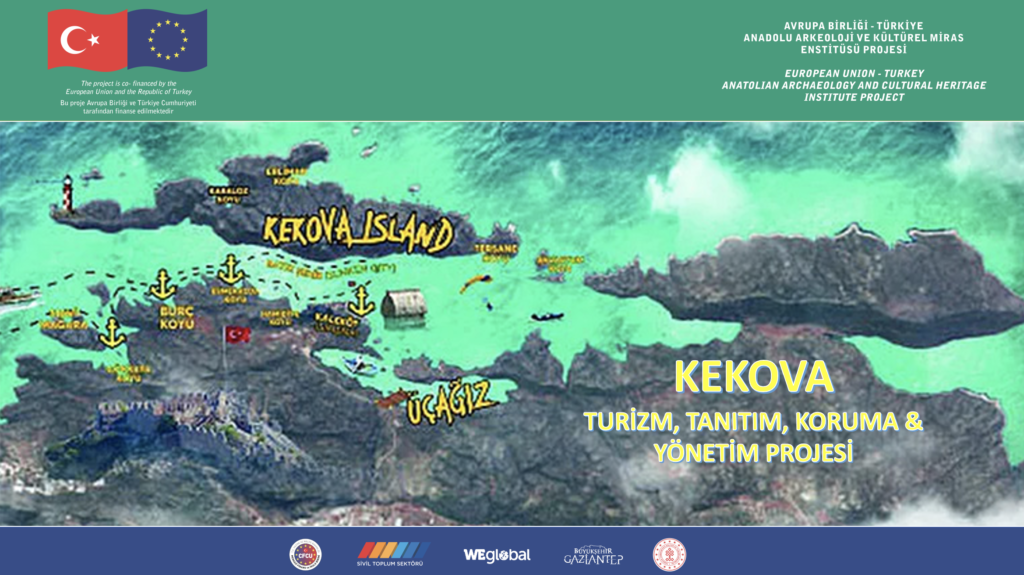
For the purpose of bringing the Kekova Tourism to the level and richness, it deserves, as well as bringing the natural-cultural conservation to the level desired, the main objective is to initiate the Kekova formation, and to transform this project into the Field Management Model in the second step.
The settlements available in Kekova, which constitutes one of the most special and well-known settlements of Antalya that is the capital of the tourism in Turkey, gives an extraordinary chance to the tourism with its extraordinary nature, unique sea and mysterious ruins. However, this chance has not been used well until today, and it has even caused a loss of attraction by being ill-treated. The low quality tourism service causes the Kekova Region not to be the most special place.
However, the region, which is a nature-culture-history-sea meeting center where any and all kinds of values are wrapped up, actually gives the chance of an extraordinary sea place for the underwater sports-tourism. When the underwater researches are completed under this project, the underwater areas suitable for tourism will be determined and mapped, and its contribution to tourism will be tried to be enhanced.
The most important part of the project is to raise awareness of the local community. A continuous training program will be implemented by the excavation team with respect to such matter under this project. It is also intended that the public will make initiatives in order to earn income from the tourism in their local business areas.
Following the project, Kekova Region will start to reach the level expected in terms of both nature and culture and tourism and other social and economic aspects.
The project has been perceived and developed as an important mission by taking into account the requests and suggestions of the Ministry of Culture and Tourism and the other institutions. Its realization will also be in the form of a consortium of all of these institutions.
The most important stakeholder of the project for the purpose of the ownership and maintenance of the project will constitute the local community. Accordingly, the public will be one of the main actors.
The Lycian Civilizations Museum will constitute the management base of the tourism studies to be developed under this project.
The conservation actions of the different masses and disciplines that play an active role in the conservation within the understanding of Contemporary Conservation are required to be carried out in an "effective" manner and in a "scheduled" manner under the sustainability, by coming together with the "participation" on the ground of social reconciliation and dialogue. Accordingly, any attempt to ensure conservation within the entire geographical, social and cultural areas constitutes the basis of the concept of "field management". The Field Management is the administrative aspect of the contemporary conservation that combines the concepts of "conservation" and "management". It is intended to transform the natural and cultural values available in the field into a multi-output organization within the balance of conservation and use.
All resources available in any living space are managed in any case (well or badly). Even if each institution fulfills its own responsibilities in all fields that are the subject of human life, such problems as conflict of authority, repetition of transactions, delays, failure to perform any transaction, incorrect performance of any transaction, inefficient use of the economic resources and time, etc. arise in the administrative system. The administrative coordination mechanism, which connects the conditions of conservation, survival and use in conservation fields and sites in order to prevent such problems, is called "Field Management".
AB-TR Anadolu Arkeoloji ve Kültürel Miras Enstitüsü Projesinin tüm bileşenleri tamamlanmış olup, Türk Arkeoloji ve Kültürel Miras Enstitüsü kuruluş çalışmaları, 7439 sayılı Türk Arkeoloji ve Kültürel Miras Vakfı Kanunu ile tamamlanmıştır.
Daha fazla bilgi için: takme.org
This will close in 0 seconds